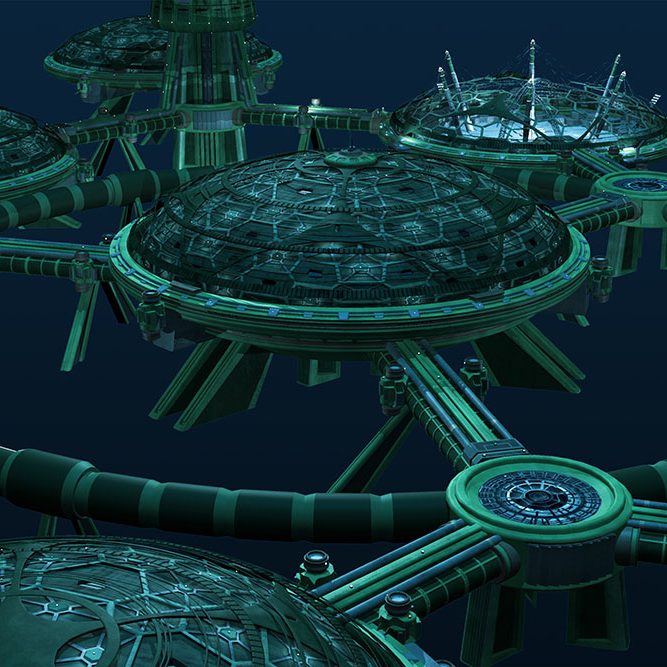
The Science of Oceanus
What if an asteroid or comet similar to the one that wiped out the dinosaurs was on course to impact our planet in contemporary times?
Imagine that due to our own shortsightedness, we never develop the capability to destroy or deflect the deadly space-borne intruder. Even worse, imagine that we are without the capacity to relocate any of our species to the Moon or Mars. It would mark the end of us all. Or would it?
In a challenging yet optimistic story that is far more ‘post-cataclysmic’ than ‘post-apocalyptic’, Oceanus follows a team of scientists, engineers, and corporate bureaucrats who are shielded from the doomsday onslaught in a spectacular, futuristic city beneath the sea. Together, they fight to survive the elements, dwindling supplies, and attacks from a cadre of desperate naval invaders—stragglers on submarines representing governments and militaries from around the world.
Science & Technology
The world of Oceanus showcases the ‘possible’ as opposed to fantasy. The program explores the aspects and potential of the undersea world in ways rarely seen in science fiction—from futuristic submarines with virtually-indestructible, transparent aluminum windows (a real material created in 2015!), to wave power generators and floating fish farms. It also features bizarre geology and spectacular lifeforms recently discovered in the depths.
However, don’t expect tired cliches like giant squid attacks or ghost ships. Dealing with the constant perils of cold, high-pressure salt water and undersea volcanoes—recently reactivated by the asteroid strike—will be more than deadly enough to give the characters trouble. Oceanus delves into the possibilities of using water itself as a tool, weapon, or building material.

Oceanus also deals heavily in robotics and artificial intelligence— topics that dominate today’s tech headlines. The interior and exterior of the underwater city is teeming with cybernetic constructs, some remotely controlled, while others are autonomous and even sentient. These elements are key to the story and influence it in unexpected ways.
Another fascinating aspect of Oceanus that will be introduced in the feature film are hypothetical bacteria found within the Emperor Trench. Nearly four billion years old, it thrives in the superheated water flowing from volcanic vents called ‘black smokers.’ The story will postulate that they originated on an ancient, wet, and primitive life-laden Mars, where they were blasted into space by a devastating meteor impact.
After drifting through space for eons, these bacteria plunged to Earth and seeded the ancient crust of the planet, eventually sparking the evolution of life on our planet. The goal will be to tie this discovery to a fictional manned Mars mission that was returning to Earth just before the asteroid impact. The Oceanus Base team will have to work to save the astronauts in order to unlock the secrets of the primitive organism that could lead to new food sources and medicines.

